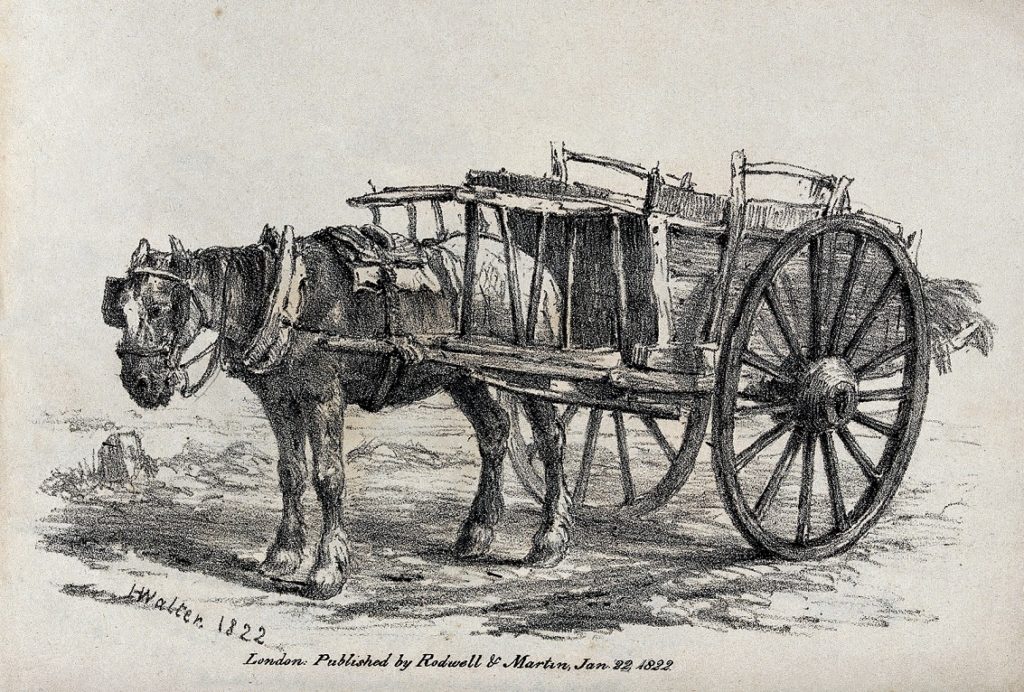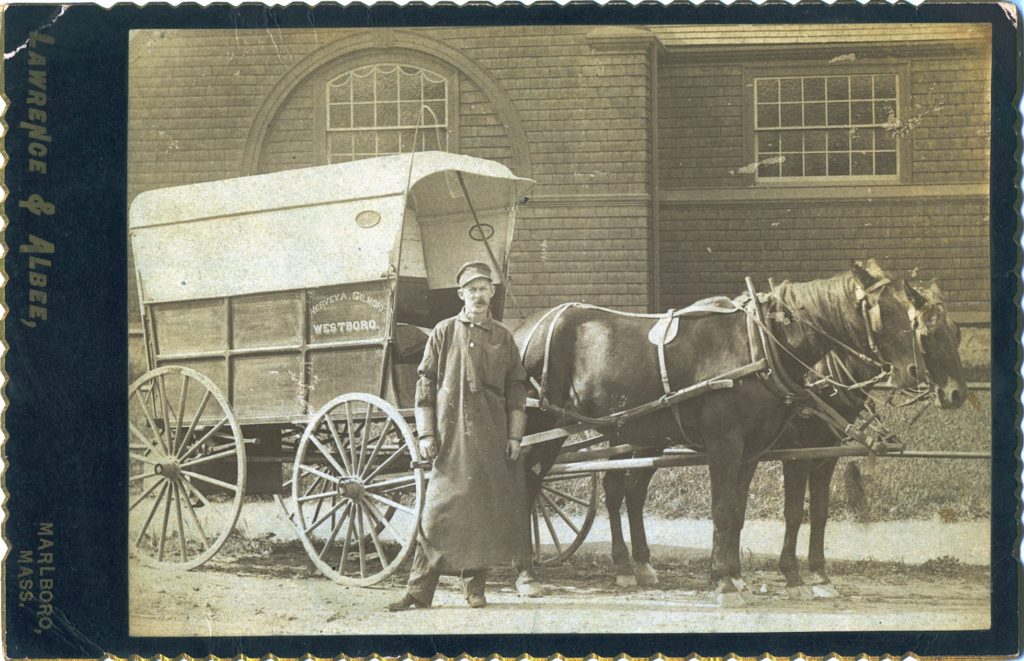
Thought Experiment
Let’s perform a thought experiment.*
The year is 1570. We meet a delivery man resting on the side of the road and ask him some questions about his job and his life. We discover that he makes his deliveries—maybe some apples grown by a farmer outside a nearby town—using a horse-drawn cart combined with quite a bit of walking. When he cooks his dinner, he does so over a fire. And when he needs to relieve himself, he uses a hole in the ground.
Now, after making so many deliveries, our resting delivery man falls asleep and does not wake up until two hundred years later in 1770. What is his life like now? Well, he still makes his delivery of locally grown apples using a horse-drawn cart and walks a lot. He still cooks his dinner over a fire. And he still relieves himself in a hole in the ground.

The same grind ends up with similar results: he falls asleep again for another one hundred years and wakes up in 1870. Now what is his life like? Well, it’s pretty much the same. He still uses a horse-drawn cart to deliver his locally grown apples. He still walks a lot. He continues to cook his meals over a fire. And he still relieves himself in a hole in the ground.
Our delivery man falls asleep once more, but this time, because he has had so much sleep he wakes up in 1940, only seventy years later. Now what is his life like? Well, he no longer makes his deliveries using a horse and cart, but does so with a truck run by an internal combustion engine. He delivers goods from all over the world, and those goods have been brought to him for distribution by airplanes, boats, railroads, and other modes of transportation. His deliveries are probably coordinated by telephone. Both he and the people who buy his goods now cook their food in kitchens equipped with ovens, stoves, and other appliances that make food preparation easier. And houses now include indoor plumbing, so our delivery man no longer has to use a hole in the ground.
And we haven’t even gotten to his trip to New York City where he encounters buildings that are seventy to a hundred stories tall, including the Empire State Building.
The profound changes that I just described all came about from the Industrial Revolution. Today, we are experiencing even more social change and disruption due to digital technology and increased globalization. What happens if our delivery driver fell asleep yet again in 1940 and woke up today?
Our delivery man would most likely wake up to find himself being a UPS or Amazon delivery driver—and he now has female colleagues! His deliveries are governed by complex supply chains, which are created and run by digital technology. And these supply chains are global, which is why I can order a Norwegian scarf from Norway for my wife for Christmas and have it delivered to my door within two days. Whereas dominant work modes were still physical in 1940, now they are mental. Communication is practically seamless, so people can live in different parts of the world and continue to communicate with people at “home.” Even more, think how fast we were able to adapt this communication system to allow us to work from home once the pandemic hit! It turns out that many of us are no longer even necessarily tied to a specific workplace anymore.
And we haven’t even got to how social media and our lives on the Internet have disrupted the way we interact with one another.
Change is all around us and now seems to be a regular part of our lives. Such change affects how we think about ourselves, our place in the world, and our place in history. Will we ever again experience a time when we can fall asleep for hundreds of years, wake up, and immediately recognize the way that people are generally living as similar to when we fell asleep? Or are we facing a world where we must continually evaluate and redefine our identities, in the same way that our delivery man had to when he woke up in 1940?
–Anthony Vaver, Local History Librarian
What will our lives look like if, after the twists and turns we have experienced over the last hundred years or so, we ever do find ourselves back on a straight stretch of history? Share your thoughts in the Comments section.
*I am paraphrasing this thought experiment from an interview I heard a few years ago with Robert J. Gordon on a Planet Money episode on NPR: https://www.npr.org/transcripts/529178937.
Suggested Reading:
* * *
The Antiques Roadshow is coming to Westborough for book lovers!
Well, close enough. On Monday, May 24, 7:00 – 8:30 p.m., Ken Gloss of the famous Brattle Book Shop in Boston will present, “The Adventure of Book Collecting,” via Zoom. Gloss will discuss book collecting—what makes a book valuable and which authors to look for. A frequent guest appraiser on PBS’ Antiques Roadshow, he will describe the joys of the “hunt,” plus guidelines for starting a collection.
If you would like Gloss to appraise one of your books, please submit a photo and description of the book plus your mobile number before Friday, May 21, to info@brattlebookshop.com. During the program, Mr. Gloss will select books to appraise that illustrate important characteristics and will appraise all others privately.
You must register in advance for this meeting: https://us02web.zoom.us/meeting/register/tZUofu2rqzguGNAS0be1515oAklELeV3y5be.
This program is co-sponsored by both the Westborough Historical Society and the Westborough Public Library Center for History and Culture.
* * *
The Westborough Public Library is revising its strategic plan for 2021-2023. Help us out by taking this short survey and giving us your feedback: http://tinyurl.com/wplsurvey2021. Your input will help us plan future services, classes and events.
* * *
Did you enjoy reading this Westborough Local History Pastimes newsletter? Then subscribe by e-mail and have the newsletter and other notices from the Westborough Center for History and Culture at the Westborough Public Library delivered directly to your e-mail inbox: https://www.westboroughcenter.org/subscribe-to-updates/.


